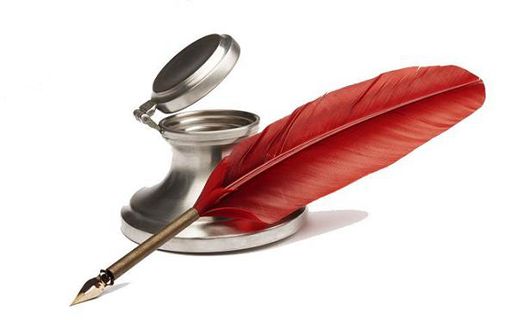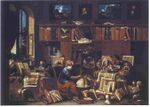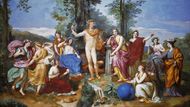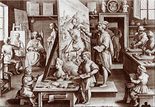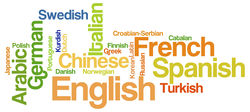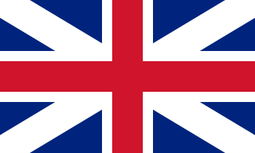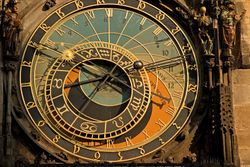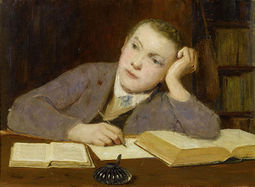Category:British
Jump to navigation
Jump to search
(previous page) (next page)
Most Famous Britons
- Queen Elizabeth I (1533–1603) -- Queen of England and Ireland. (1558–1603). Brought a period of relative internal stability, and led England to victory over the Spanish Armada during the Anglo-Spanish War. Her reign is known as the Elizabethan era.
- William Shakespeare (1564–1616) -- Poet and playwright. Creator of Hamlet, Macbeth, Romeo and Juliet, and many more. Thought of by many as the greatest of all English-language writers. An influential figure in theatre, his plays have been performed more often than those of any other playwright. His work is praised for its humanity, diversity, psychological depth and countless new words and expressions which have become part of the English language.
- Oliver Cromwell (1599–1658) -- 1st Lord Protector of the Commonwealth of England, Scotland and Ireland (1653–1658). Served as the commander of the New Model Army during the First and Second English Civil Wars against King Charles I. Though praised by historians for moving the country to a more democratic system of government, Cromwell's nomination was controversial due to his actions during the Cromwellian conquest of Ireland.
- Isaac Newton (1642–1727) -- Physicist, mathematician, astronomer, theologian and natural philosopher. Originator of universal gravitation and laws of classical mechanics and laws of motion. His Principia is one of the most influential works in the history of science.
- Horatio Nelson (1758–1805) -- Naval commander, famous for his service in the Royal Navy, particularly during the Napoleonic Wars. His victory during the Battle of Trafalgar was significant in preventing Napoleon's planned invasion of the United Kingdom.
- Jane Austen (1775-1817) -- Jane Austen was an English novelist known primarily for her six novels, which implicitly interpret, critique, and comment upon the British landed gentry at the end of the 18th century. Austen's plots often explore the dependence of women on marriage for the pursuit of favourable social standing and economic security.
- Charles Darwin (1809–1882) -- Biologist, geologist and naturalist. Originator of the theory of evolution through natural selection and author of On the Origin of Species.
- Charles Dickens (1812-1870) -- Charles John Huffam Dickens was an English novelist and social critic who created some of the world's best-known fictional characters, and is regarded by many as the greatest novelist of the Victorian era.
- Queen Victoria (1819-1901) -- Victoria was Queen of the United Kingdom of Great Britain and Ireland from 20 June 1837 until her death in 1901. Her reign of 63 years and 216 days, which was longer than any of her predecessors, is known as the Victorian era.
- Winston Churchill (1874–1965) -- Prime Minister (1940–1945, 1951–1955). Historically ranked as one of the greatest British prime ministers. Led the nation during World War II, when the country defended itself against a planned German invasion. He was an important figure in post-war national and international politics. Received the Nobel Prize in Literature in 1953.
- Charlie Chaplin (1889-1977) -- Sir Charles Spencer Chaplin KBE was an English comic actor, filmmaker, and composer who rose to fame in the era of silent film. He became a worldwide icon through his screen persona, the Tramp, and is considered one of the film industry's most important figures.
- Margaret Thatcher (1925-2013) -- Margaret Hilda Thatcher, Baroness Thatcher, LG, OM, DStJ, PC, FRS, HonFRSC, was a British stateswoman and Conservative politician who served as Prime Minister of the United Kingdom from 1979 to 1990 and Leader of the Conservative Party from 1975 to 1990.
- Queen Elizabeth II (1926-2022) -- Elizabeth II was Queen of the United Kingdom and other Commonwealth realms from 6 February 1952 until her death in 2022. She was queen regnant of 32 sovereign states over the course of her lifetime and remained the monarch of 15 realms by the time of her death.
- Julie Andrews (1935) -- Dame Julie Andrews DBE is an English actress, singer, and author. She has garnered numerous accolades throughout her career spanning over seven decades, including an Academy Award, a BAFTA Award, two Emmy Awards, three Grammy Awards, and six Golden Globe Awards as well as nominations for three Tony Awards.
- John Lennon (1940–1980) -- Pop/rock singer-songwriter, musician, activist and member of music group The Beatles. One of the most famous, successful, influential, covered and admired pop artists of all time. Hailed for his highly personal and experimental music, rebellious free-spirited attitude and peace activism.
- Paul McCartney (1942) -- Sir James Paul McCartney CH MBE is an English singer, songwriter and musician who gained worldwide fame with the Beatles, for whom he played bass guitar and shared primary songwriting and lead vocal duties with John Lennon.
- Diana, Princess of Wales (1961–1997) -- First wife of Charles III (marriage 1981–1996), and mother of William, Prince of Wales, and Prince Harry, Duke of Sussex. Admired for her philanthropic deeds.
Subcategories
This category has the following 25 subcategories, out of 25 total.
1
- 1720 Savage, William (singer) GBR
- 1869 Booth, Walter R. (director) GBR
- 1874 Garden, Mary (singer, dancer) GBR
- 1876 Henderson-Bland, Robert (actor) GBR
- 1876 Warner, Henry Byron (actor) GBR - USA
- 1878 Gaye, Howard (actor, director) GBR - USA
- 1882 Coates, Albert (conductor) GBR
- 1889 Boult, Adrain (conductor) GBR
- 1889 Chaplin, Charlie (actor, director) GBR
- 1898 * Dyer, Percy (actor) GBR
- 1906 Reed, Carol (director) GBR
- 1908 Lean, David (director) GBR
- 1909 Arden, Neal (actor) GBR
- 1910 Niven, David (actor) GBR
- 1911 Lough, Ernest (singer) GBR
- 1913 Firth, Frederick (singer) GBR
- 1915 Welles, Orson (actor, director) GBR
- 1922 Day, Robert (director) GBR
- 1924 Wise, Herbert (director) GBR
- 1927 Russell, Ken (director) GBR
- 1935 Andrews, Julie (actor) GBR
- 1937 Hopkins, Anthony (actor) GBR
- 1950 Chilvers, Phil (director) GBR
- 1960 Grant, Hugh (actor) GBR
- 1967 King, Matthew (composer) GBR
Pages in category "British"
The following 200 pages are in this category, out of 659 total.
(previous page) (next page)1
- Robert of Ketton (M / Britain, Spain, 1110? – 1160?), scholar
- Robert Grosseteste (M / Britain, 1175c-1253), scholar
- Geoffrey Chaucer (M / Britain, 1340c-1400), poet
- John Colet (M / Britain, 1467-1519), scholar
- Myles Coverdale (M / Britain, 1487-1569), scholar
- William Tyndale (M / Britain, 1494ca-1536), scholar
- John Bale (M / Britain, 1495-1563), playwright
- Richard Taverner (M / Britain, 1505-1575), scholar
- George Buchanan (M / Britain, 1506-1582), playwright
- Anthony Gilby (M / Britain, 1510-1585), scholar, translator
- Nicholas Grimald (M / Britain, 1519-1562), playwright
- William Whittingham (1524-1579), scholar
- Thomas Stocker (M / Britain, 16th cent.), translator
- Antonio del Corro (M / Spain, Britain, 1527-1591), scholar
- John Dee (M / Britain, 1527-1608), occultist
- Peter Morwen (c1530-c1573), scholar
- William Goldingham (M / Britain, 16th cent.), playwright
- Thomas Legge (M / Britain, 1535-1607), playwright
- Hugh Broughton (1549-1612), scholar
- John Prime (1550-1596), scholar
- Richard Hooker (1554-1600), scholar
- Philip Ferdinand (1555-1598), scholar
- Edward Kelley (M / Britain, 1555-1597), occultist
- Robert Rollock (1555-1599), scholar
- Thomas Lodge (M / Britain, 1558-1625), scholar
- William Perkins (1558-1602), scholar
- John Smythe (M / Britain, 1563-1612), playwright
- William Shakespeare (M / Britain, 1564-1616), playwright
- Gervase Markham (M / Britain, 1568-1637), playwright
- John Rogers (1572-1636), scholar
- William Percy (M / Britain, 1574–1648), playwright
- William Haughton (M / Britain, 1575-1605), playwright
- Samuel Purchas (1577-1626), scholar
- George Sandys (1577-1644), traveler
- John Vicars (1579/80-1652), scholar
- William Attersoli (d.1640), scholar
- Elizabeth Cary (F / Britain, 1585-1639), playwright
- Thomas Hobbes (1588-1679), scholar
- William Greenhill (1591-1671), scholar
- Alexander Ross (1591-1664), scholar
- Méric Casaubon (1599-1671), scholar
- Samuel Clarke (1599-1683), scholar
- Peter Heylyn (1599-1662), scholar
- John Hilton the Younger (M / Britain, 1599-1657), composer
- William Sampson (M / Britain, c1600-c1660), playwright
- Brian Walton (M / Britain, 1600-1661), scholar
- Christopher Cartwright (1602-1658), scholar
- William Heminges (M / Britain, 1602-1653), playwright
- John Lightfoot (1602-1675), scholar
- John Done (1604-1662), scholar
- Thomas Browne (1605-1682), scholar
- Henry Hammond (1605-1660), scholar
- John Milton (M / Britain, 1608-1674), poet, playwright
- Cosmo Manuche (M / Britain, 1613-1673), playwright
- Margaret Fell (F / Britain, 1614-1702), Quaker leader
- George Hutcheson (1615-1674), scholar
- Roger L'Estrange (1616-1704), scholar
- Isaak Vossius (M / Sweden, 1618-1689), scholar
- Thomas Manton (1620–1677), scholar
- Roger Boyle (M / Britain, 1621-1679), playwright
- Samuel Cradock (1621-1706), scholar
- James Ferguson (1621-1667), scholar
- Jane Lead (F / Britain, 1623-1704), visionary
- Charles-Marie de Veil (1630-1685), scholar
- Robert Burton (M / Britain, 1632-1725), novelist
- John Locke (1632-1704), scholar
- Samuel Pordage (M / Britain, 1633-1691), playwright
- Daniel Whitby (1638-1726), scholar
- John Crowne (M / British America, Britain, 1641-1712), playwright
- John Mill (1645-1707), scholar
- Humphrey Prideaux (M / Britain, 1648-1724), scholar
- Thomas Otway (M / Britain, 1652-1685), playwright
- Matthew Tindal (1657-1733), scholar
- Humphrey Hody (1659-1707), scholar
- Henry Purcell (M / Britain, 1659-1695), composer
- Francis Lee (1661-1719), scholar
- Richard Bentley (1662-1742), scholar
- Matthew Henry (1662-1714), scholar
- John Hudson (M / Britain, 1662-1719), scholar
- Laurence Howell (1664-1720), scholar
- Henry Maundrell (1665-1701), traveler
- ~ Joannes Ernestus Grabe (1666-1711), German-British scholar
- William Wotton (1666-1727), scholar
- William Whiston (1667-1752), scholar
- Thomas Woolston (1668-1733), scholar
- Jean Gagnier (1670c-1740), scholar
- Thomas Taylor (1670c-1735), British translator
- Anthony Blackwall (1672-1730), scholar
- Robert Miller (1672-1752), scholar
- Anthony Collins (1676-1729), scholar
- Thomas Stackhouse (1677-1752), scholar
- Charles Hayes (1678-1760), scholar
- Simon Ockley (1678-1720), scholar
- Anthony Hall (1679-1723), scholar
- Elijah Fenton (M / Britain, 1683-1730), playwright
- Nathaniel Lardner (1684-1768), scholar
- Georg Frideric Haendel (M / Germany, Britain, 1685-1759), composer
- Thomas Mangey (1688-1755), scholar
- Thomas Lewis (1689-1749), scholar
- Thomas Morgan (1690-1743), scholar
- Francis Peck (M / Britain, 1692-1742), poet
- Peter Annet (1693-1769), scholar
- Maurice Greene (M / Britain, 1696-1755), composer
- William Huggins (M / Britain, 1696-1761), librettist
- Thomas Chubb (1697-1747), scholar
- George Sale (1697-1736), scholar
- George Benson (1699-1762), scholar
- Benjamin Stillingfleet (M / Britain, 1702-1771), librettist
- John Wesley (1703-1791), scholar
- Richard Pococke (1704-1765), traveler
- Thomas Augustine Arne (M / Britain, 1710-1778), composer
- John Hoadly (M / Britain, 1711-1776), librettist, translator
- John Stanley (M / Britain, 1712-1786), composer
- Jacob Bryant (1715–1804), scholar
- Mary Collyer (F / Britain, 1716-1762), poet, translator
- Thomas Barker (1722-1809), scholar
- Mary Latter (F / Britain, 1722-1777), playwright
- Joshua Reynolds (1723-1792), artist
- John Cameron (M / Britain, 1724-1799), novelist
- Charles Godfrey Woide (1725-1790), scholar
- Edward Harwood (1729-1794), scholar
- James Bruce (1730-1794), traveler
- George Horne (M / Britain, 1730-1792), scholar
- William Bell (M / Britain, 1731-1816), scholar
- Henry Fuseli (1741-1825), artist
- William Paley (1743-1805), scholar
- Mary Eleanor Bowes Strathmore (F / Britain, 1749-1800), playwright
- Thomas Linley the Younger (M / Britain, 1756–1778), composer
- William Blake (1757-1827), artist
- Frances Elizabeth King (F / Britain, 1757-1821), author
- Herbert Marsh (1757-1839), scholar
- Richard Laurence (M / Britain, 1760-1838), scholar
- Adam Clarke (1762-1832), scholar
- Robert Gray (1762-1834), scholar
- Robert Haldane (1764-1842), scholar
- Mrs E.M. Foster (F / Britain, 18th-19th cent.), novelist
- Samuel Taylor Coleridge (1772-1834), scholar
- John Galt (M / Britain, 1779-1839), novelist
- Horace Smith (M / Britain, 1779-1849), novelist
- Chistian Isobel Johnstone (F / Britain, 1781-1857), novelist
- Richard Watson (1781-1833), scholar
- Benjamin Robert Haydon (1786-1846), artist
- Charles Edward Horn (M / Britain, United States, 1786-1849), composer
- Thomas Smart Hughes (M / Britain, 1786-1847), poet
- James Kendrick Pyne (M / Britain, 1788-1857), singer
- John Martin (1789-1854), artist
- Anne Mary Perceval (F / Britain, 1790-1876), scholar
- Thomas Vowler Short (M / Britain, 1790-1872), novelist
- William Pace (M / Britain, 19th cent.), novelist
- Henry H. Milman (1791-1868), scholar, poet and playwright.
- Daniel Nihill (1791-1867), scholar
- Isaac Nathan (M / Britain, Australia, 1792-1864), composer
- John Gibson Lockhart (1794-1854), novelist
- Thomas Arnold (1795-1842), scholar
- William H. Hale (1795-1870), scholar
- David Roberts (1796-1864), artist
- Nathaniel Ogle (1796-1858), novelist
- Richard Cobbold (1797-1877), novelist
- John James Tayler (1797-1869), scholar
- Edward Murray (1798-1852), British scholar
- Morris Jacob Raphall (M / Sweden, Britain, United States, 1798-1868), scholar
- George Payne Rainsford James (1799-1860), novelist
- Samuel Sharpe (1799-1881), scholar
- Richard Westmacott the Younger (1799-1872), artist
- Jane Margaret Strickland (F / Britain, 1800-1888), novelist
- William Ball (1801-1878), playwright
- Robert Jamieson (1802-1880), scholar
- Harriet Martineau (F / Britain, 1802-1876), novelist
- Richard Henry Horne (1803-1884), playwright
- Edward Bulwer Lytton (1803-1873), novelist
- Susanna Moodie (F / Britain, 1803-1885), novelist
- Henry Rich (1803-1869), playwright
- John Kitto (1804-1854), scholar
- Joseph Esmond Riddle (1804-1859), scholar
- William Cunningham (1805-1861), scholar
- Elizabeth Harriet Siddons Mair (F / Britain, 1805-1877), novelist
- Samuel Palmer (1805-1881), artist
- Annie Molyneux Peploe (F / Britain, 1805-1880), novelist
- Lancelot Brenton (M / Britain, 1807-1862), scholar
- Samuel Davidson (1807-1898), scholar
- John Medows Rodwell (1808-1900), scholar
- John Rogers Herbert (1810-1890), artist
- Charles Duke Yonge (1812-1891), scholar
- George Alexander Macfarren (M / Britain, 1813-1887), composer
- Thomas Robinson (1813-1890), scholar
- Henry Solly (M / Britain, 1813-1903), playwright
- Nicholas Darnell (1817-1892), translator
- Benjamin Jowett (1817-1893), scholar
- John Bridges (1818-1854), artist
- Edwin George Monk (M / Britain, 1819-1900), librettist
- William Muir (1819-1905), scholar
- John Turtle Wood (1821-1890), scholar
- Ford Madox Brown (1821-1893), artist
- William Milligan (1821-1892), scholar
- Edward Hayes Plumptre (1821-1891), scholar
- Charlotte Maria Tucker (F / Britain, 1821-1893), novelist
- George Whyte-Melville (1821-1878), novelist
- Francis Frith (1822-1898), artist
